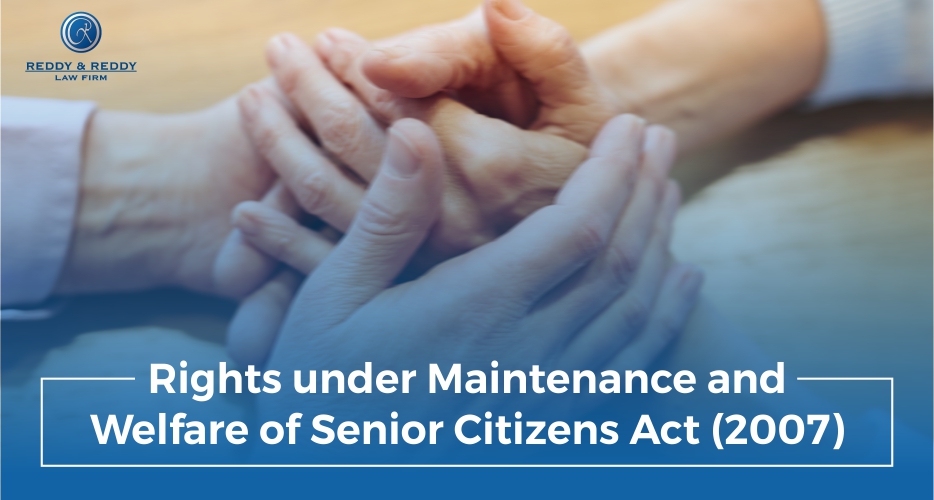As our parents and elders age, it’s our moral and legal responsibility to ensure they are cared for and provided with basic amenities. The prospect of relying on children for care in their golden years often prompts seniors to gift them property. However, this trust can be misplaced, leaving elderly parents vulnerable and without a home. The Maintenance and Welfare of Parents and Senior Citizens Act, 2007 (the Act) provides a legal safety net in such situations.
The Requirements for Cancelling a Gift Deed
Section 23 of the Act outlines the conditions under which a gift deed can be cancelled by a senior citizen. Crucially, it does not require the condition of providing maintenance to be explicitly stated in the deed itself. The expectation is implicit: that by gifting property to their child, the elderly parent trusted they would be cared for in return.
If this basic expectation is violated and the child “refuses or fails to provide for the parent’s basic amenities and physical needs,” the parent can seek cancellation of the gift transfer. The courts have made it clear that a gift cannot be revoked merely on the passing whim of the transferor. There must be a substantive failure on the part of the child to fulfil their obligations of care and support.
Case Laws Upholding this Provision
The judiciary has consistently upheld the rights of senior citizens under Section 23 in cases where children have neglected their duties. In Sumesh Anand vs. Vinod Anand, a gift deed was set aside after a son failed to take care of his parents’ basic needs post-transfer. Similarly, in Promil Tomar vs. the State of Haryana, a transfer was declared void when the recipient failed to maintain the transferor as required.
An important ruling came in Mohamed Dayan vs. District Collector, where the court clarified that cancellation is not dependent on specific conditions in the deed. What matters is the conduct of the recipient child, both before and after the execution of the transfer.
The Bombay High Court judgement in Amisha Shrivastava vs. Ashwin Khater (Sept. 12, 2023) exemplifies how the Act can be applied effectively. In this case, an elderly woman successfully revoked gift deeds to her son after he denied her access to her own house and failed to provide necessities. The court, upholding the tribunal’s order, recognised that denying access to one’s home constitutes a denial of basic amenities.
In a recent Supreme Court judgement an appeal regarding a petition filed under Section 23 of the Maintenance and Welfare of Parents and Senior Citizens Act, 2007. Ramti Devi sought to cancel a release deed transferring property to her daughters, including the appellant, Sudesh Chhikara, alleging non-compliance with care conditions. The Tribunal initially ruled in Ramti Devi’s favour, but the Supreme Court overturned this decision, stating that the necessary conditions were not met. The Court dismissed Ramti Devi’s petition, setting aside previous rulings.
The Bombay High Court overturned a decision by a senior citizens tribunal regarding the revocation of gift deeds made by parents to their deceased son’s widow. The tribunal had cancelled the gift deeds and directed the widow to give possession of properties to the parents, along with monthly maintenance. However, the High Court ruled that the tribunal lacked jurisdiction over the dispute, as it pertained to partnership firm assets, not maintenance issues. Additionally, the widow was not obligated to provide maintenance under the law. The court emphasised that the parents should seek recourse through a dissolution of the partnership rather than seeking assets through the Senior Citizens Act. The widow agreed to continue paying maintenance to her mother-in-law as per the court’s request.
The Bombay High Court’s judgement dated April 1, 2024, in W.P.No.16019 of 2023, directed the Collector to prioritize matters concerning senior litigants and treat them with sensitivity during adjudication. In essence, the court emphasized that the Collector should show compassion and understanding when dealing with senior citizens’ legal cases.
Beyond the Basics: Additional Considerations
Here are some important points to remember:
- Applicability: The Act is only applicable to gift deeds executed after December 29, 2007, the date it came into effect.
- Filing Process: Senior citizens can apply with the Maintenance Tribunal in their state. While legal representation isn’t mandatory, it can be invaluable.
- Cost-effectiveness: The fees associated with applying are minimal compared to the expenses involved in traditional court proceedings.
Wider Implications and the Way Forward
The ability to cancel gift deeds provides a crucial layer of protection for vulnerable senior citizens. Without this provision, many could be rendered homeless and destitute after transferring hard-earned assets in good faith.
At the same time, the law aims to strike a balance by setting reasonable expectations for children. Mere disagreements or temporary difficulties in providing care may not be grounds for cancellation. The failure must be willful and relate to fundamentally failing to provide the basic amenities required for a reasonable standard of living.
For senior citizens facing neglect and struggling to access their rights, the Act provides a legal pathway through dedicated maintenance tribunals to seek relief. While the process is intended to be accessible, in reality, there can be procedural hurdles and the need for legal counsel given the sensitive family dynamics involved.
As our society continues to grapple with the issues of providing dignity in old age, legislative safeguards like the one enabling cancellation of gift deeds will remain highly relevant. Both awareness and robust implementation are key to ensuring the elderly can truly live out their life’s twilight years in peace and security.
The Act serves as a vital safeguard for senior citizens who may have been pressured or misled into gifting property. By understanding your rights and the legal options available, you can take proactive steps to secure your well-being in your later years.
Additionally, it’s important to note that the Act also offers protection against other forms of exploitation. For instance, if a child or grandchild pressures a senior citizen into transferring property through coercion or undue influence, the transfer can be declared void under the Act.
Empowering senior citizens with knowledge and legal recourse is essential to preventing elder abuse and ensuring they are treated with the dignity and respect they deserve.

